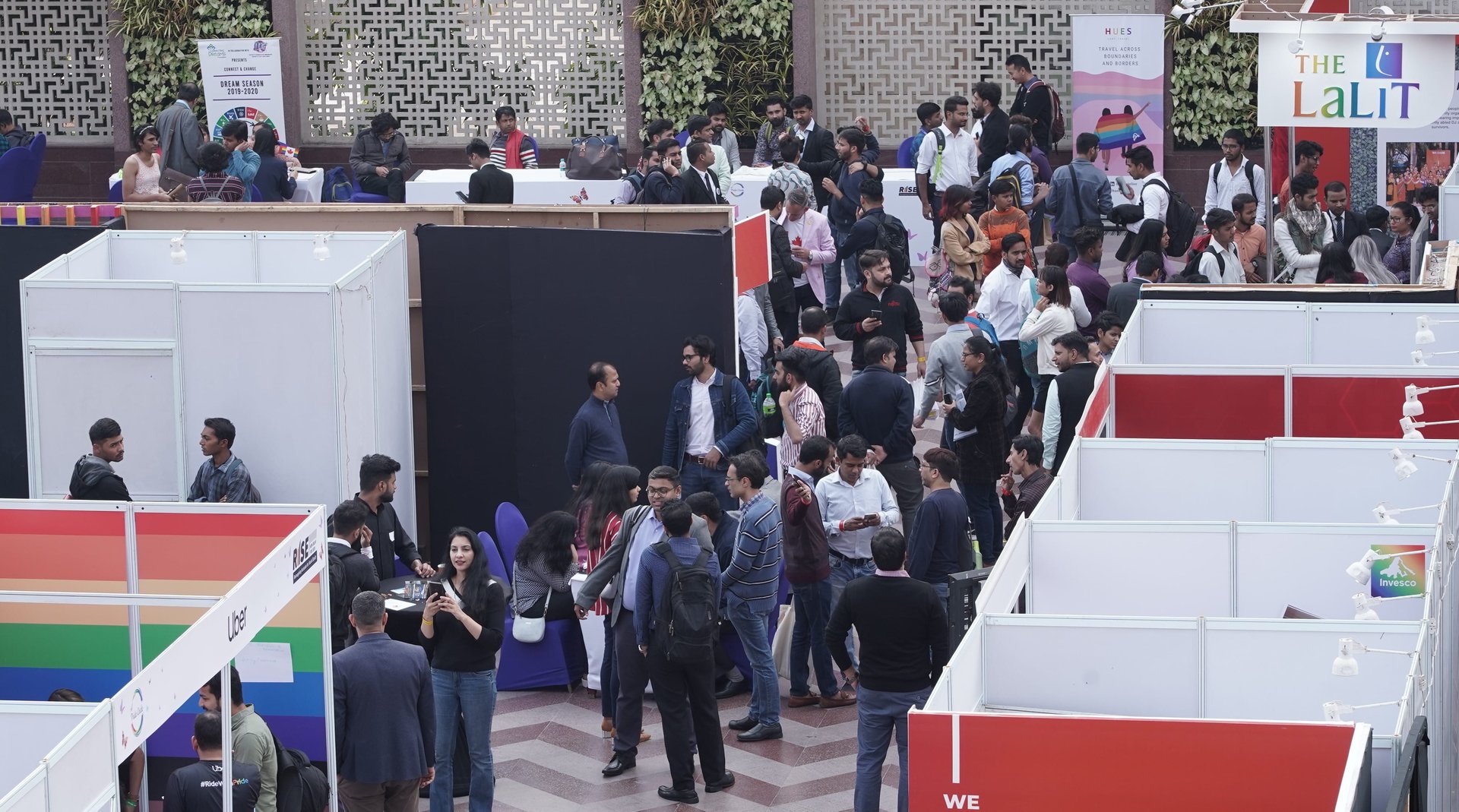How to find a job in India when you’re LGBTQI+
While India decriminalised homosexuality two years ago, most Indian companies are still taking the first steps towards gender diversity.


While India decriminalised homosexuality two years ago, most Indian companies are still taking the first steps towards gender diversity.
The representation of LGBTQI+ employees at large and small Indian companies is still significantly low. To top this, in India, 79% of the LGBTQI+ employees have indicated that their career growth has slowed down because of their gender identity and expression, and revealing their sexual orientation, according to a recent report by Accenture (pdf).
In this scenario, many employees choose to keep their identities private. According to the Accenture report, only 40% of employees across 26 countries globally are open about their gender expression. Yet, there are some companies in India that are not only vocal about their goals for a gender-diverse workplace but also hire affirmatively.
To tap into this network of inclusion, there’s plenty an LGBTQI+ job seeker could do—including, in some cases, signifying one’s identity on one’s resumé. But not without caution.
“Indian companies are all at different stages of inclusion. Job seekers should recognise and understand that. Some, for instance, are very advanced in terms of being sensitised and participating in LGBTQI+ job fairs,” says Parmesh Shahani, head of Godrej India Culture Lab, and author of Queeristan. “But the truth is, not many companies are there yet. We are constantly trying to get them there.”
This is how an LGBTQI+ person can ensure they are applying to a workplace that is right for them.
How to find a diverse and inclusive workplace
The first and foremost step in this process is deep research. “Read up about a company’s LGBTQI+-friendly policies. And if you can, find an employee of the company who is a visible ally,” said Ramkrishna Sinha, co-founder of diversity & inclusion consultancy Pride Circle.
A good place to start is a company’s social media accounts; if it has participated in the Pride month, one would generally find a post about it. The other obvious marker would be if the company has clear policies to promote and sustain gender and sexual orientation inclusion. This would include healthcare insurance for gender affirmation therapies and surgeries, insurance for same-sex partners, and parental leave for same-sex partners adopting a child.
“But despite all this, a company’s inherent culture could be non-friendly for LGBTQI+ coworkers,” he says.
In such cases, and where these primary markers of diversity & inclusion are not clear, a job seeker can choose to ask questions during the interview. Some of these could be whether the company has volunteered with LGBTQI+ organisations, whether there are gender-neutral washrooms, etc. “Today, it is perfectly ok for a candidate to say, ‘Hey, this is what I’m bringing to the table. What are you willing to offer me as a company?’” Sinha adds.
Shahani notes that while it may be easier for people in senior leadership to ask questions—like he did while joining Mahindra & Mahindra—young recruits may not get the chance to do that. The other alternative is then to get into the company and slowly help them build it into an inclusive space. “This is what we call jugaad resistance,” Shahani says.
A good way to do that is by instilling a sense of “FoMo” in these companies. “Indian companies recognise that MNCs globally have diversity & inclusion policies. But if you point them towards Indian exemplars, they begin to feel the need to match up to these changing standards,” he adds.
Once they identify a diverse & inclusive workplace, should people from the LGBTQI+ community speak about their gender identities on their resumés?
How and when to talk about your gender identity
To put it succinctly—it depends, and you don’t even have to. It depends on where the person is in their own journey, how open the company is, at what level you’re being hired, and what the conversation has been like so far.
“Ideally, disclosing your gender identity or sexual preference isn’t necessary. Eventually, people should get hired for their skills, attitude, and the value they bring to the organisation. However, this is something, if a person feels comfortable, they can share with HR knowing when the company is inclusive,” says Neelam Jain, CEO and co-founder of PeriFerry, an organisation that creates sustainable livelihoods for the trans community.
This conversation may be different if one is applying specifically at LGBTQI+ job fairs like Rise, Vividh, and Qrious. These fairs, Shanani says, at least ensures the first level of inclusion checks. Several organisations today are thinking about and actively hiring people from the trans community, according to Pride Circle’s Sinha.
Eventually, though, a signifier on the resumé will only take you so far. “Companies who also choose to hire affirmatively are looking for incredible talent, and their only question is whether you fit the job or not. The idea is to welcome you, to tell you that you will be treated equally,” Shahani explains.
He also adds that today, social media has robust queer networks, offering guidance on everything from queer-friendly housing to inclusive companies. “Reach out to them, talk to the NGOs like Nazariya and Humsafar. Often, all these spaces have a very clear understanding of what’s happening on ground,” Shahani adds.
And through it all, at no point should one feel compelled to reveal their sexual preferences or identity. “Straight people don’t worry about whether they should reveal they are hetero or not. All anyone wants is a workplace that respects you,” he says.